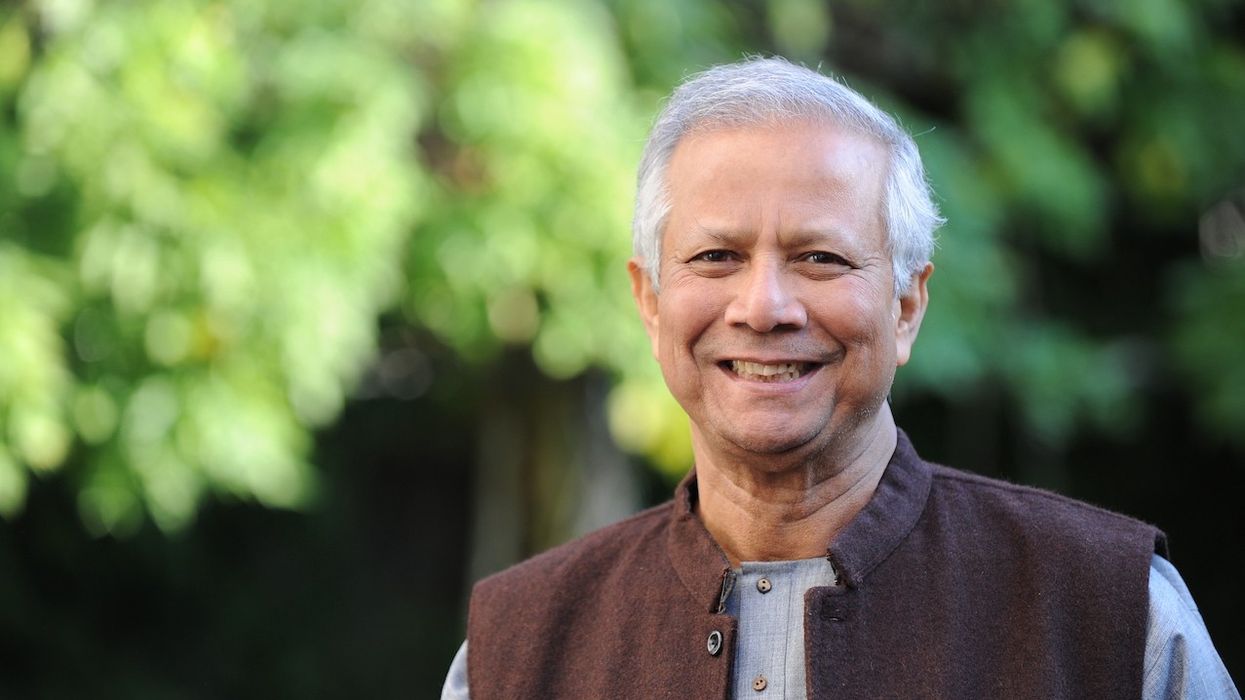THE Nobel peace laureate Muhammad Yunus has condemned what he says is a smear campaign driven by “powerful quarters”, saying news outlets in Bangladesh have falsely accused him of corruption.
Yunus, 83, is credited with lifting millions out of poverty with his pioneering micro-credit bank. However, he has fallen afoul of prime minister Sheikh Hasina, who has accused him of “sucking blood” from the poor.
State-run media, news websites and social media have accused him of corruption and of financially aiding Israel, a flashpoint issue in Muslim-majority Bangladesh, which does not recognise the country.
“I don’t want to name names, but I believe these are backed by powerful quarters”, he said, adding that he categorically denied the reports.
Yunus, who rarely comments on Bangladeshi matters after a brief foray into politics in 2007, said he was compelled to speak out after repeated allegations of corruption in an apparently coordinated media campaign.
“We have seen a network of social media pages and websites produce numerous false and fabricated content with distorted photos and videos targeting me,” he said. “They even attributed false quotes to me.”
Hasina, 76, is readying for general elections due by the end of January. She has been accused of ruling Bangladesh with an iron fist and the United States has sanctioned some of the south Asian nation’s most senior poice figures for widespread human rights violations.
The past year has seen a series of huge rallies against Hasina’s administration by protesters demanding that a neutral caretaker government preside over the elections. Hundreds of senior political opposition leaders have been arrested, with top figures charged with murder after a policeman was killed during recent anti-government protests.
The government has “cracked down on dissenting voices”, said Abdullah Al Mamun, a professor of journalism at the University of Rajshahi, calling the Yunus smear campaign “disgraceful”.
“Yunus has become a significant target because of his good ties with the Americans, who have ratcheted up pressure on the government for a free and fair election”, he said.
Bangladeshi media quoted a top official from Hasina’s ruling Awami League, AJM Nasir Uddin, claiming Yunus had donated $10 million (£8.17m) to Israel. However, he did not reply to requests asking for more details about his comment.
The Bangla Insider website said in its story that information on the alleged donation came from an Israeli foreign ministry statement. But the ministry told reporters that no such statement exists.
The Bangla Insider editor Syed Borhan Kabir did not provide further information for his report, which Yunus dismissed as “fake news”.
“I ignored the campaigns with the hope that it will stop on its own. But in recent months the disinformation and smear campaigns have worsened to an unprecedented level,” Yunus said.
Yunus won the Nobel Peace Prize in 2006 for founding the Grameen Bank, which is credited with helping eradicate extreme poverty in Bangladesh by offering micro-finance loans to tens of millions of rural women.
He is now bogged down battling 175 separate criminal and labour tribunal cases related to social business firms he set up to create jobs and bring services to the poor.
His lawyers say he is innocent of all charges and decry the cases as government harassment.
Yunus appeared in court last Thursday (9) for a case in which he is accused of violating labour laws.
If found guilty, he faces up to six months in jail.
In August, 160 global figures including former US president Barack Obama and ex-UN secretary-general Ban Ki-moon published a joint letter condemning the “continuous judicial harassment” of the micro-credit pioneer.
The signatories – including more than 100 of his fellow Nobel laureates – said they feared for “his safety and freedom”. (AFP)




